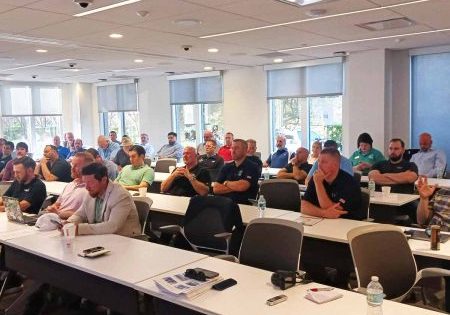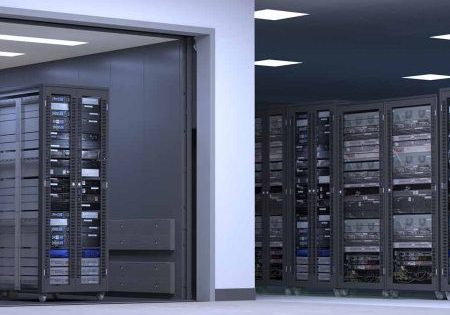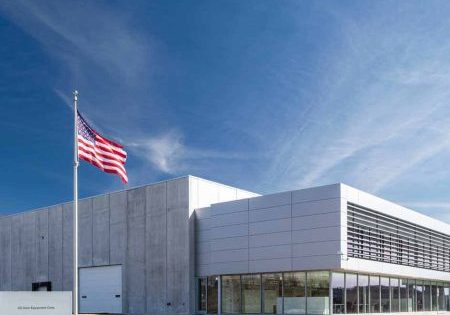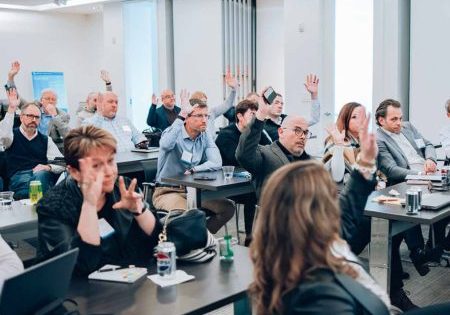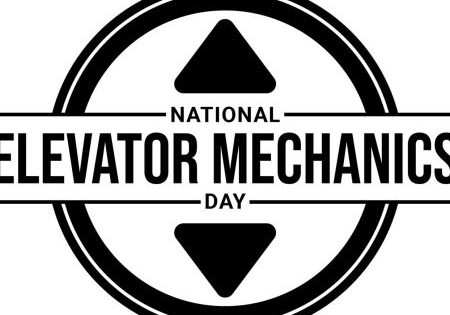A Rich German Legacy
Apr 1, 2025
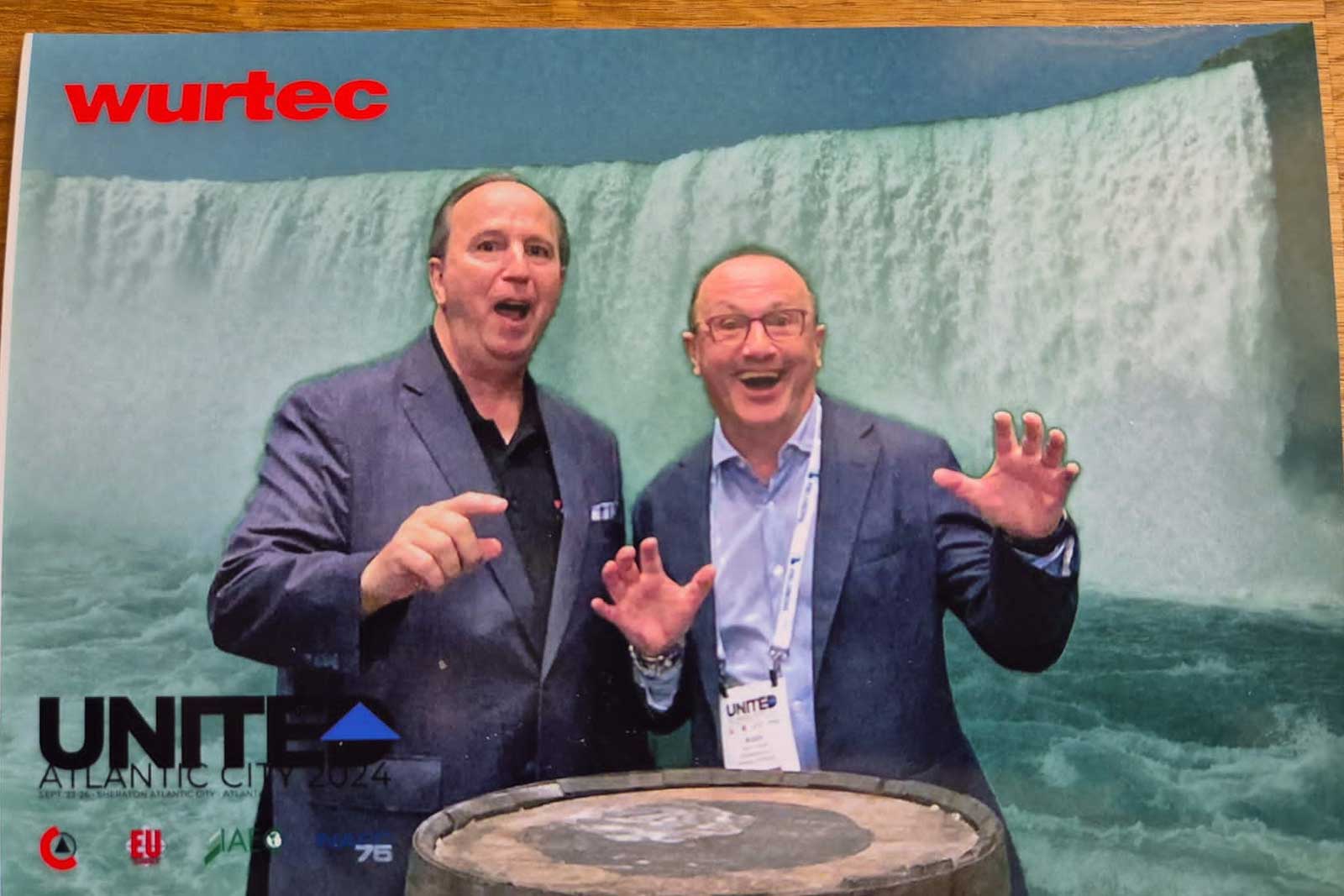
In this “10 Questions,” your author (MJ) learns more about Achim Hütter (AH), the man rumored to have been “born in an elevator hoistway.”
Let me set the scene: NYC, corner of 53rd Street and 6th Avenue, at least 10 to 12 years ago, approximately 10 or 11 in the morning. Waiting on the southwest corner and exercising safety as I look both ways before crossing west to the Hilton Midtown to meet a potential customer. As I look south before crossing, get the green light, check for delivery bicyclists and am about to step off the sidewalk, I realize standing next to me at the same light is none other than Achim Hütter (formerly of Germany-based Hütter Aüfzuge who now works as a consultant, among other endeavors)!
I had attended an interlift or two in previous job positions, so I knew this gentleman. I had also crossed paths with Hütter at various National Association of Elevator Contractors (NAEC) events, as well as at the most recent interlift in Augsburg, Germany. I don’t recall what he was doing in NYC that day, but I believe shopping was involved. Since that time, we’ve maintained a long-distance, cordial relationship always distinguished by warm conversations. It was at the last NAEC Convention & Expo in Atlantic City, New Jersey, that I asked him if he would participate in a “10 Questions,” and he wholeheartedly answered, “Of course!” Please enjoy these “10 Questions.”
MJ: Tell me about your history and the Hütter family history in the elevator industry.
AH: Born in an elevator hoistway? Yes, that was me — at least a lot of people refer to me in that way. In the late 1960s and early 1970s, the approach to workplace safety was very different from today. My father, running the family-owned Hütter Elevators in Hamburg, Germany, in its third generation, worked most Saturdays, which was normal back then. He took me to third-party inspections and handovers of elevators to customers. I was allowed to trip the speed governor, and I remember being afraid of the loud noise it generated.
My great-grandfather, Henrich Hütter, founded H. Hütter Jr. on April 24, 1876. After studying electromechanics and working in different companies for one year to enlarge his knowledge, he came back to his father who ran the company H. Hütter to ask for a job. His father (my great-great grandfather) meagerly offered a bed and three meals a day as payment, so young Heinrich set up his own company around the corner. To distinguish it from his father’s company, he added a “Jr.” to the name.
The company’s path to specializing in elevators took nearly 100 years. Next to elevators, the young company produced electrical-driven transmissions for factories, winches for warehouses, cranes for the harbor and electrical lighting for public places. Soon, elevators became a more important part of the houses and spacious offices of rich Hamburg merchants.
A Great Depression and two World Wars later, Hamburg found itself in ruins. Eighty percent of all buildings in the city were destroyed. My grandfather, who had taken the reins after his father’s death after World War II, built the company up again from the ashes. In 1953, he passed away, and my father took over. Germany flourished after the war. The company’s specialty was elevators and cranes, and the Hütter company grew to 150 employees, becoming a top player in northern Germany.
My grandfather, who had taken the reins after his father’s death after World War II, built the company up again from the ashes.
— Achim Hütter
MJ: Was there any pressure on you personally to enter the family business, or was it a foregone conclusion?
AH: Although I was never pursued to take over the company as my father had been, I was quite interested in it. After my first encounters with speed governors from the young age of 15 onward, I worked a lot of vacations in the factory to earn pocket money. From counting inventory to calibrating equipment to drilling countless holes into little metal plates, my first assignments sent me straight into utter boredom. The next steps were mounting doors and cars before I went on to new elevator installations and working as a helper on modernizations.
Finally, in university I chose business administration over engineering because controlling the financial part was more important in my mind. My father died in 1987 when I had finished only half my studies. Nevertheless, immediately after, I started working 20 h a week to get to know the parts of the business I didn’t fully know. In March 1989, right after my last exam, I started as managing director.
Unfortunately, due to my father’s long illness, the company was not in good shape. Next to my absolute inexperience in how to run a company, I had to deal with major debt stemming from the company’s relocation 17 years earlier, maxed-out credit lines, aging employees, slow sales and a neglected service business.
Five years after taking over, Hutter was split into a parent company and two operating subsidiaries — production and service, with no debt and unused credit lines. This was maintained for almost the entire time until the company was sold in 2013.
MJ: During your time with Hütter Aüfzuge, which particular projects made a lasting impression?
AH: Two projects stand out. In 2001, the year Hütter Elevators celebrated its 125th anniversary, the company received a multimillion-euro contract to add 14 new elevators (and modernize paternosters) at the lavishly modernized Sprinkenhof, the biggest office complex in Hamburg, built in the late 1920s with elevators from my grandfather and landmarked as a UNESCO World Heritage Site in 2015.
The second is the Dockland office building in Hamburg, futuristically shaped like a ship. The two inclined elevators serving the building are distinguished by high-tech features such as rail brackets totally isolated from the building, remote control (including the safety circuit) without a traveling cable, inductive power supply and much more, earning it a prestigious ELEVATOR WORLD Project of the Year (PoY) award (ELEVATOR WORLD, January 2007).
MJ: What is your interpretation of failure, and how do you learn from it?
AH: My inexperience led to a few small and large failures. Once, a good customer asked if his son could come for a school apprenticeship with the company. I said he should send an application. But then, for some internal reason, I decided against it. The result was a deeply disappointed customer (and his son). The lesson was: Think before you talk, and always include the view of your counterpart(s) in your thoughts. I also tended to be very reluctant to let go employees who didn’t fit the team. If someone didn’t contribute to company goals, represent the business well or set a bad example for others, a layoff should have been inevitable if corrective measures had not worked.
A visit from R.B. Peelle of The Peelle Co. began a long connection between our companies that persists today.
— Hütter on attending the first interlift
MJ: You sold Hütter Aüfzuge. When and why?
AH: At the end of 2012, my family sat down at the dinner table and I asked my children about their future. Both hadn’t shown any interest in the business so far, and it became very clear this would never change. As these two were the only possible successors, it became apparent that the history of Hütter Elevators would come to an end. My father passed away when he was only 65. Considering this, the prospect of working another 10-15 years wasn’t very appealing. Consequently, we signed a contract with Otis in July 2013.
MJ: How has your professional life been since selling the company?
AH: Businesswise, I used my gained free time in three ways. Firstly, I founded a consulting firm. I still advise German medium-sized companies, as well as private-equity and multinational companies, on issues relating to the elevator market. Secondly, as I always loved our international inclined elevator projects, I set up a company to sell concepts and parts to Southeast Asia. (We won several PoY awards in this category.) This business got disrupted by the COVID-19 pandemic and was converted by January 2025 into a boutique elevator maintenance company serving the greater Hamburg area. Thirdly, I intensified my activities within (VFA-Interlift e.V.), particularly in regard to norms and standards, international awareness and political influence.
MJ: Describe your relationship with VFA-Interlift.
AH: I learned from our salesperson there would be an elevator show called interlift in 1991 in Augsburg, Germany, done by an elevator association called VDA-Interlift. As doors were a part of our business, we booked a booth and were absolutely overwhelmed by the results. Contacts from all over the world came, and we had hundreds of interested potential customers. A visit from R.B. Peelle of The Peelle Co. began a long connection between our companies that persists today.
Realizing associations are a good way to connect within the industry and learn from others, I took part in the association’s annual general meeting right after the exhibition. Coincidentally, a new board was elected, and I was asked to join as some “young blood.” A new world opened, as the board consisted of some of the finest elevator businessmen in Germany. As a very impatient young elevator guy, I admired the calmness and composure with which they led even critical negotiations to success. In 1995, my position on the VFA-Interlift board moved to vice chairman.
MJ: How did people feel about the decision to move interlift from Augsburg to Nuremberg after so many years?
AH: Each interlift from 1991 to 2019 excelled compared to its predecessor, providing a professional stage for the international elevator industry to present their products. Even the COVID and after-COVID editions in 2022 and 2023 maxed out the given exhibition area in Augsburg. The required space was provided only by adding temporary exhibition halls. This was the reason for VFA and its partner, AFAG, to look for new exhibition space. Our choice was Nürnberg Messe, one of the top 15 trade fair venues in the world. It not only exceeds the size requirements, but it is also close to an airport, a large selection of hotels, restaurants and has a subway directly connected to the exhibition grounds. Many of the issues that Augsburg had no answer for are now solved. Bookings from elevator companies show that the decision has been extremely well-received.
MJ: What do you do in your spare time?
AH: In my private life, I learned to play golf. I travel several months each year to Southeast Asia, Southern Africa and South America to avoid the cold, grey winter in Germany. Also, every year I concentrate on a task that I always wanted to learn but never felt confident in.
MJ: You have your choice of three dinner guests. Who would you choose and why?
AH: During my time in the industry three people particularly impressed me: Horst Wittur for his vision and persistence, Lien Randle for her motivation and dedication and Albrecht Hildebrandt for his sincerity and professionalism.
Get more of Elevator World. Sign up for our free e-newsletter.


